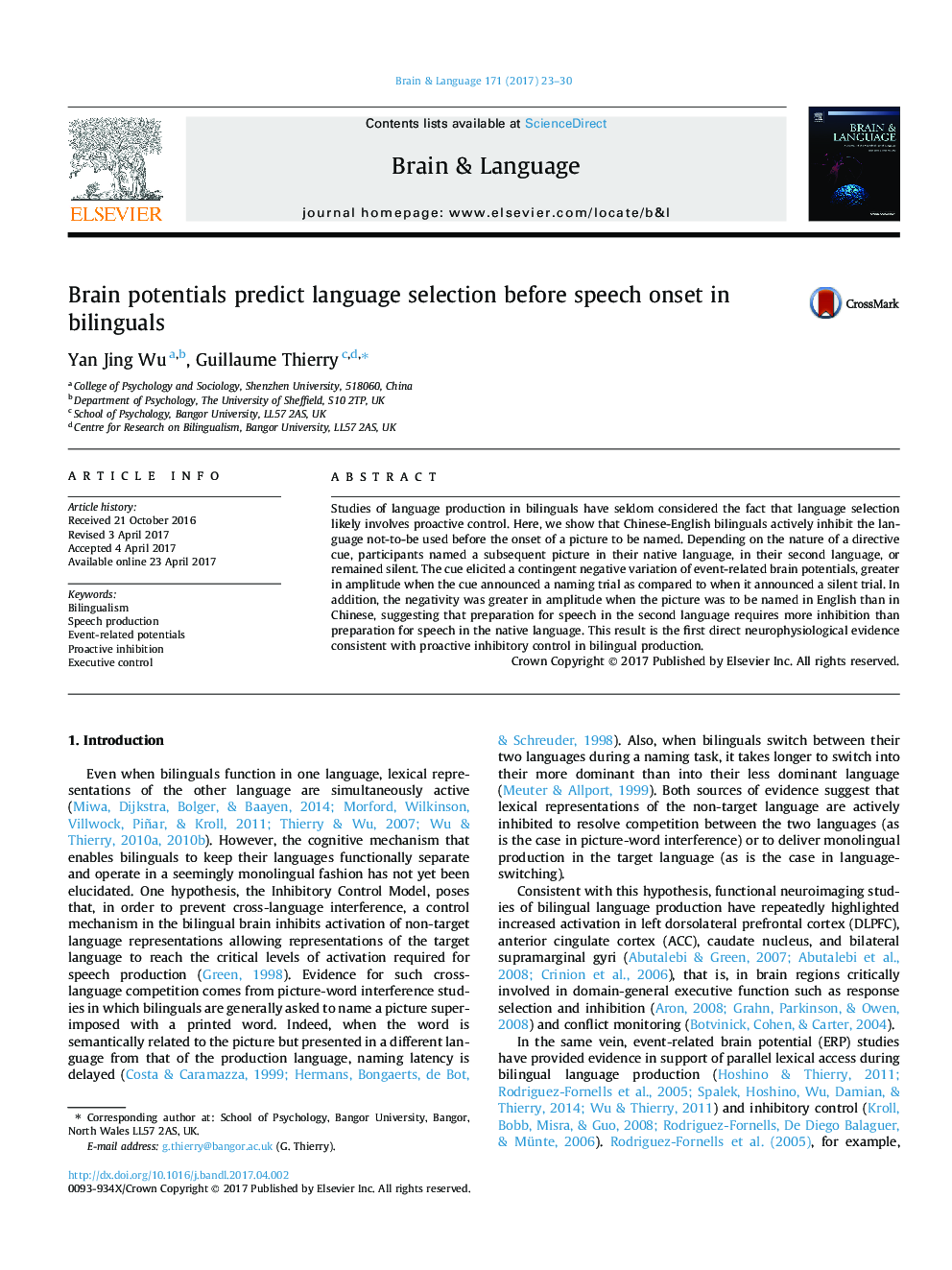| Article ID | Journal | Published Year | Pages | File Type |
|---|---|---|---|---|
| 5041271 | Brain and Language | 2017 | 8 Pages |
â¢Bilinguals inhibit their native language before producing second language words.â¢Neural activity before stimulus onset can predict language selection in bilinguals.â¢Preparatory activity correlates with post-stimulus activity and performance.
Studies of language production in bilinguals have seldom considered the fact that language selection likely involves proactive control. Here, we show that Chinese-English bilinguals actively inhibit the language not-to-be used before the onset of a picture to be named. Depending on the nature of a directive cue, participants named a subsequent picture in their native language, in their second language, or remained silent. The cue elicited a contingent negative variation of event-related brain potentials, greater in amplitude when the cue announced a naming trial as compared to when it announced a silent trial. In addition, the negativity was greater in amplitude when the picture was to be named in English than in Chinese, suggesting that preparation for speech in the second language requires more inhibition than preparation for speech in the native language. This result is the first direct neurophysiological evidence consistent with proactive inhibitory control in bilingual production.
